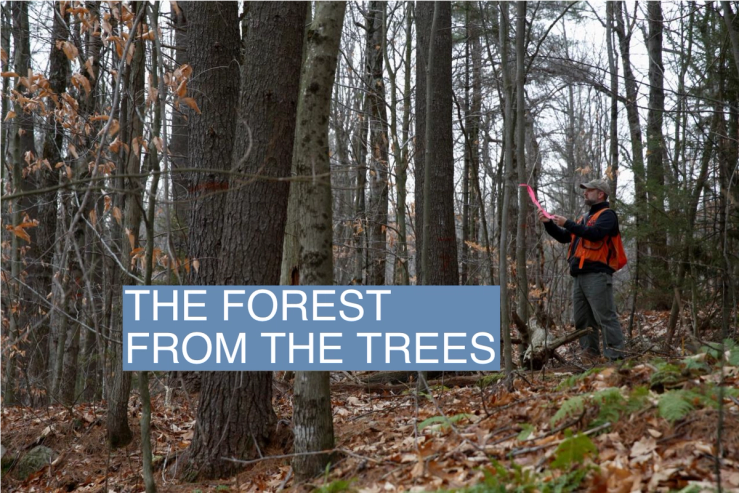The News
A slew of high-profile greenwashing scandals in recent months hasn’t deflated enthusiasm at COP28 for one of the most controversial climate solutions: Carbon offset credits. The summit is awash in companies, governments, and independent oversight groups looking to cut or facilitate carbon-trading deals and patch up the industry’s battered reputation.
U.S. climate envoy John Kerry, Kenyan President William Ruto, and other top officials here in Dubai have advocated for the role carbon credits can play in driving private capital from high-emitting companies in the U.S. and Europe to carbon-cutting projects, such as renewable energy and forest conservation, in the “global south.” Dozens of project developers are attending the summit, pitching offsets derived from everything from algae and cattle ranching to solar farms and forest conservation. Their overarching goal is to shake off a reputation of shoddy accounting that can drastically overstate projects’ climate benefits, as well as accusations of land-grabbing and the withholding of financial proceeds from local communities.
“There’s a growing recognition in this COP that you have to be able to do something with offsetting, as long as it’s not seen as greenwashing in the sense of validating the continued use of fossil fuels,” Adam Hedley, an attorney who manages carbon deals for the firm Clifford Chance in London, told Semafor at the summit.
Tim’s view
The carbon market is splintering into varying degrees of quality, from the unimpeachable carbon removal credits that buyers like Microsoft are willing to shell out hundreds of dollars per ton for, to the highly dubious “carbon neutral” fossil fuels that Shell sells to energy companies in Asia. While governments and carbon industry groups have dragged their feet on setting more stringent rules, two problems have emerged: The risk of reputational backlash has choked off even higher-quality corners of the carbon market, with overall purchases down 25% this year compared to 2021; and less scrupulous players, especially in the oil and gas sector, are plowing into the market full steam ahead.
At COP28, leaders like Kerry have pressured sellers and buyers to raise the bar and restore the market’s confidence through a mishmash of new voluntary standards with more rigorous criteria for what constitutes a high-quality carbon credit, and what types of green claims buyers can make on the basis of them. But it remains an open question how effective those efforts will be. And in the meantime, negotiations in Dubai over long-unsettled details of carbon market rules dating to the Paris Agreement seem to be moving backward.
“In Glasgow [at COP26] I was almost physically holding Greta Thunberg and Mark Carney apart from each other, and people were screaming and yelling,” said Rachel Kyte, a former top climate finance official at the World Bank who now co-chairs the Voluntary Carbon Markets Initiative, a nonprofit leading the development of industry guidelines. “Two years later we actually have an end-to-end integrity rulebook that will make it easier for good companies to invest more quickly. There’s no excuse now for a corporation to not start using the carbon market.”
Just before COP, Kyte’s group released new standards for what constitutes credible use of carbon credits by companies, including, among others, that they decline to zero by 2035. They follow a different set of voluntary guidelines issued this summer for carbon project developers that stipulate, for example, how forestry projects must monitor forest loss and maintain pools of buffer credits to account for inexactitude in their measurements. Also at COP28, six of the major carbon brokerage registries committed to collaborate on raising their own standards.
Meanwhile, a program led by Kerry to help low-income countries design certified carbon projects signed on a number of new corporate buyers, including Schneider Electric, Amazon, and PepsiCo. These efforts are all essentially in a race to take market share away from lower-quality projects, Kyte said.
“There is still a huge amount of capital that isn’t much bothered about integrity — oil and gas capital from this part of the world in particular — that wants to get into Africa and other markets,” she said. “The pressure to do low-integrity deals is very much there.”
The “poster child” example, she said, is a package of deals by a firm called Blue Carbon, led by a member of Dubai’s ruling family. The firm has recently snapped up millions of acres of forested land in several African countries, including 10% of the territory of Liberia, from which to generate carbon credits on the assumption that it will prevent logging in areas that would otherwise be deforested. The firm has been accused of trampling local land rights and of overstating the baseline deforestation rate. “That’s the kind of project we want to see less, not more, of,” Kyte said.
Know More
In addition to these voluntary measures, COP28 negotiators are also working on rules for carbon trading under the auspices of the Paris Agreement. In theory, these rules would give national governments a structure by which they can use carbon projects to meet their own decarbonization goals or raise money through the sale of credits to companies or other countries. But after eight years of hammering these out, negotiators remain deeply divided on the same kind of quality and monitoring questions that have hamstrung the existing carbon market. Some countries, including the U.S., favor relatively flexible rules in the interest of getting these markets up and running quickly; more climate-vulnerable nations would prefer to see stricter rules even if it means the market takes years longer to develop.
“Frankly, it’s a total mess,” Hedley, of Clifford Chance, said. “It’s probably not going to happen at this COP.”
Quotable
“I’m sensing a very high level of optimism and energy at this COP. You’re starting to see a convergence between the regulations in developed and developing countries in order to be able to trade carbon assets between countries, and getting to a point where a ton of CO2 is a global standard.” — Mustafa Rawji, CEO of Rawbank, the largest bank in the Democratic Republic of the Congo, which is investing $20 million to develop carbon credit projects in the rainforest there.
The View From Maine
One carbon speculator roaming the halls of COP28 is the timber company Weyerhauser. In September, it launched a pilot project to sell carbon credits from a 50,000 acre patch of forest it owns in Maine. The idea is that the company will scale back its planned harvesting of timber from the patch, and sell carbon credits based on those avoided deforestation emissions. The company effectively decided that certain parts of its 11 million acre forest portfolio can be more profitable to conserve for the carbon market than to harvest for timber, Chief Development Officer Russell Hagen said. But the company has wanted to move cautiously while rules for credibility take shape.
“We’ve seen some of the bad projects get punished,” he told me. “Candidly, I’m glad we didn’t finish ours a year ago, because we could watch how the market was reacting to a lot of the negative press, and then decide how to concretely differentiate ourselves.”
Room for Disagreement
The new voluntary guidelines are far from perfect, said Gilles Dufrasne, policy lead at Carbon Market Watch, a think tank. The supply-side guidelines offer project developers too much “wiggle room,” he said, and the demand-side guidelines allow companies to count carbon credits against up to half of their Scope 3 emissions, which is “quite backwards” compared to what is recommended by the Science Based Targets Initiative, which recommends best practices across an array of emissions-cutting efforts.


